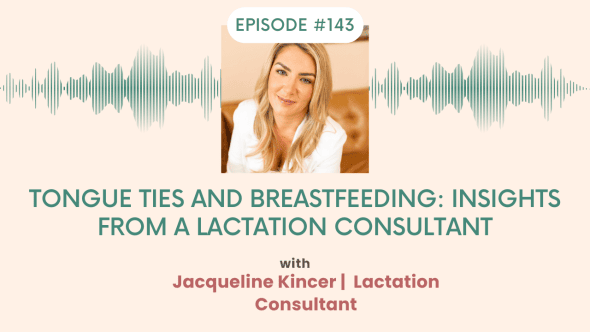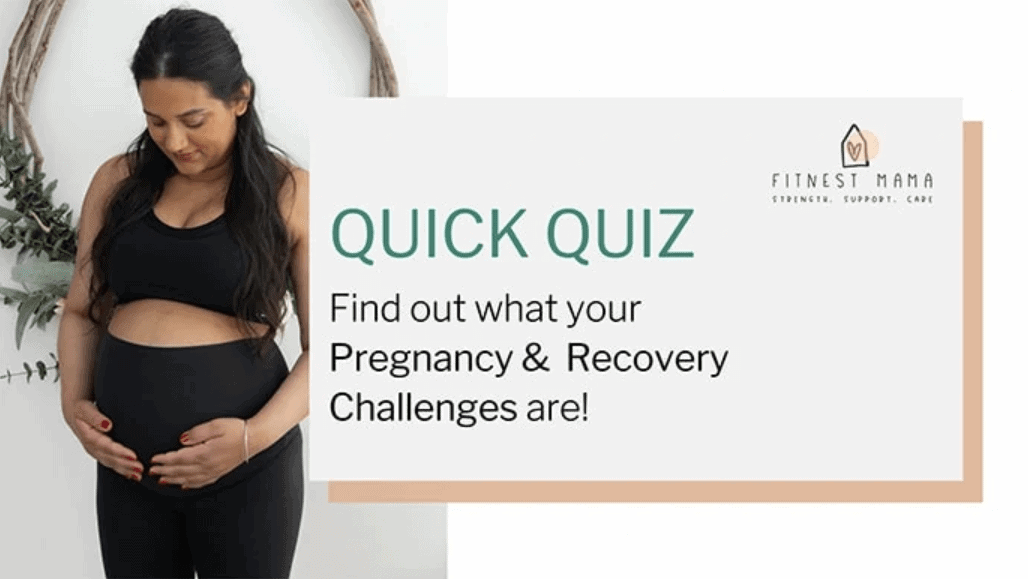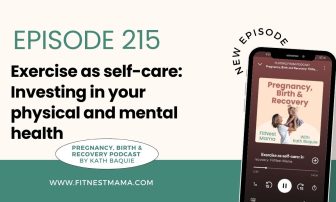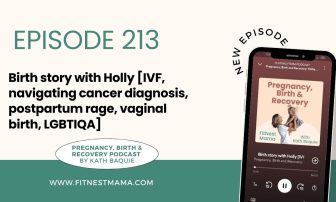In this podcast episode we discuss the the connection between tongue ties and breastfeeding, with lactation consultant Jacqueline Kincer. Gain valuable insights, practical strategies, and expert advice to help you navigate the challenges and empower yourself during your baby’s oral development and breastfeeding journey.
During this episode we discuss:
- What is a tongue tie and how does it affect its ability to breastfeed?
- What are the signs and symptoms of a tongue tie in babies?
- How is a tongue tie diagnosed, and who should I consult for an evaluation?
- What are the treatment options for tongue ties, and how do they work?
- Are there any strategies or techniques I can use to help my baby with breastfeeding or oral development if they have a tongue tie?
We trust you’re going to love this episode, let us know you’ve listened! Send us a DM on Instagram @fitnestmama.
Breastfeeding and Tongue Ties
Breastfeeding is a beautiful process, but sometimes challenges like tongue tie can make it difficult for babies to latch properly, causing pain for mothers. In this podcast episode we explore the insights shared by Jacqueline Kincer, a breastfeeding advocate and CEO of Holistic Lactation, as she discusses tongue tie and its impact on breastfeeding.
What is Tongue Tie?
Tongue tie is a genetic condition that can affect the motion of the tongue, crucial for breastfeeding, speech, breathing, and swallowing. Jacqueline Kincer highlights its significance for both babies and adults.
Impact on Breastfeeding
Tongue tie can have a profound impact on breastfeeding. Mothers may experience poor latch, pain, and babies may prefer one breast. Symptoms like reflux, colic, and a drop in milk supply can also be signs of tongue tie.
Diagnosis and Assessment of Tongue Tie
Diagnosing tongue tie requires a functional assessment by a professional trained in breastfeeding and infant oral mechanics. It is important to observe tongue movement and assess functional problems, rather than relying solely on appearances.
Long-term Complications of Tongue Tie
Tongue tie can lead to long-term complications. It can cause speech difficulties and impact the airway, resulting in issues like narrowed nasal passages, mouth breathing, snoring, and sleep apnea. Dental issues and posture problems may also arise.
Treatment Options for Tongue Tie
Treating tongue tie involves addressing latch and muscle issues in addition to any consideration to surgical release. Releasing the tongue tie and undergoing therapy can help improve breastfeeding. Surgical release may be necessary if other treatments don’t provide sufficient improvement and post-operative care is crucial for proper healing. Please always consult your healthcare provider for assessment, diagnosis and treatment options related to you and your baby’s unique situation.
Seeking Expertise for Tongue Tie
Seeking guidance from professionals, such as International Board Certified Lactation Consultants, is crucial for managing tongue tie. Jacqueline Kincer and other experts can provide support and expertise in assessing and treating tongue tie. Seeking a second opinion can always be considered too, to help best evaluate ties and determining the best course of action.
Tongue tie presents challenges for breastfeeding, but understanding the signs, seeking professional assessment, and exploring appropriate treatment options can help overcome these obstacles. Consult the show notes for contact details and resources to access reliable information on tongue tie and breastfeeding.
** This podcast has general information only. Always seek the guidance of your doctor or other qualified health professional with any questions or concerns you may have regarding your health or medical condition.
Episode Links
Preparing for birth Pelvic health checklist
Free 7 Day Trial Pregnancy Workouts
Free 7 Day Trial Postnatal Workouts
Instagram @fitnestmama
https://holisticlactation.com/
https://www.instagram.com/holisticlactation/
DISCLAIMER:
All information is general in nature and doesn’t substitute individualised assessment, treatment and diagnosis. If you have any questions or concerns please consult your healthcare provider.





